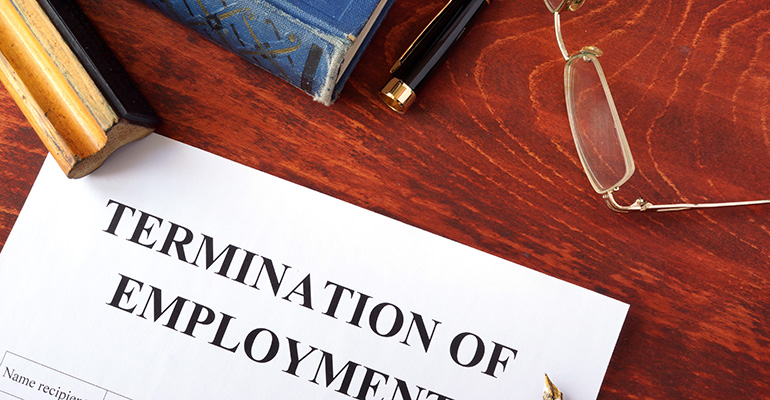
Understanding Constructive Dismissal & Wrongful Termination in Florida
Employees across Florida are all too often the subject of constructive dismissal or wrongful termination.
Wrongful termination occurs when an employer fires you due to circumstances that are a violation of employee rights, including injustices such as age discrimination, race discrimination, and sexual harassment. But what is constructive dismissal?
What Is Constructive Dismissal?
Constructive dismissal refers to an involuntary resignation by an employee when their continued employment becomes impossible. The work becomes so intolerable, creating a hostile work environment, that the employee is compelled to quit. Since the resignation by the worker is involuntary, it is considered termination, allowing the employee to bring litigation against their employer.
What constitutes constructive dismissal is typically a series of events or incidents, not just a singular event — unless it is considered highly egregious, such as an employer demanding that the employee break the law.
Other terms for constructive dismissal that people may be familiar with include constructive discharge and constructive termination.
When Can You Claim Constructive Dismissal in Florida?
If you are categorized as an employee and have been employed with the company for a certain period of time, typically about twelve months, you can claim constructive dismissal. However, this does not generally apply to contractors, vendors, temporary workers, or related workers not classified as employees.
Examples of Constructive Dismissal
Constructive dismissal examples can be quite varied, including involuntary resignation due to:
- Employers allowing (and/or participating in) consistent bullying, either psychological or physical
- Employers allowing (and/or participating in) sexual harassment in the workplace
- Employers making you consistently work in unsafe work environments
- Employers creating unreasonable changes to your schedule, including making you frequently work additional hours over your shift
- Employers refusing to pay you or unreasonably reducing your pay
- Employers allowing (and/or participating in) discriminatory behavior in the workplace
These examples are not comprehensive. If you have been subjected to intolerable working conditions and have had no other choice but to quit, contact an employment lawyer to determine if you have a case.
Is There a Statute of Limitations for Filing a Claim of Constructive Dismissal?
Similar to other types of cases, constructive dismissal does have a statute of limitations for filing a claim. The statutes of limitation can vary. For any case involving discrimination based on race, color, national origin, sex, age, or disability, a claim must be filed within 180 days of your last day at work. The sooner you contact an attorney, the better. If you wait too long, your ability to hold your employer accountable and potentially collect significant compensation is no longer an option.
Building a Case for Constructive Dismissal
It takes legal experience when you are building a case for constructive dismissal. An employee rights attorney gathers, organizes, and analyzes evidence, then develops a strong argument for constructive dismissal. There are two main elements that are important in building a case.
#1 – Show that your work environment was so intolerable that a reasonable employee in that position would have been compelled to resign. The focus is on the intolerability and the “reasonable” behavior – how a typical person would react in the same situation.
#2 – Show that the employer had knowledge of the intolerable working condition or had intentions to force the resignation.
As mentioned above, a pattern of egregious conduct that is out of the ordinary needs to be shown as you’re building the case, separate from extraordinary circumstances such as an employer requirement of criminal behavior of an employee or a criminal act of violence committed against the employee.
How to Prove Constructive Dismissal
When considering how to prove constructive dismissal, there are multiple factors involved that your employee rights attorney will work diligently to showcase in detail.
If you have been subjected to prolonged unsafe working conditions or other circumstances determined to be intolerable, you will need to prove that the employer was aware of or investigated any complaints by the employee. Details of conditions present and any incidents would be included in the documentary evidence.
If illegal activity was involved in the constructive dismissal, several conditions/factors should be present to prove the case. Depending on the situation, this can include the nature of the employer’s illegal conduct, whether the employee was required or requested to participate in illegal activity, and the time period between when the alleged illegal activity occurred and the resignation of the employee.
If too much time has elapsed between the alleged illegal conduct and when the employee quits, it will be more difficult to make a strong case. This is another reason to ensure that you do not delay in contacting an attorney to determine if you have a case of constructive dismissal.
When to Contact a Florida Employment Law Attorney
Have you been forced to quit because you have been subjected to repeated sexual harassment in the workplace?
Have you been forced to quit because they wanted you to “fudge the numbers” on your company accounts or billing statements?
Have you been forced to quit because your workplace has unsafe handling practices of toxic chemicals or unsafe equipment on the factory floor?
It is not uncommon for people across industries to have to deal with intolerable working conditions and find it impossible to work with their company anymore and have to resign.
Employees have the right to feel safe at work. If you have had to tender your resignation due to no fault of your own, contact an employee rights attorney to discuss what happened. Employment lawyers are on your side to protect you from powerful, bullying employers.
Wenzel Fenton Cabassa, P.A. is dedicated to justice. We care deeply about the safety of employees and are here to help. Our employment lawyers have the toughness and experience needed to aggressively represent your case. Contact us today to set up a free, confidential consultation. We handle all of our cases on a contingency basis, so we are only paid if we obtain compensation for you.
Please Note: At the time this article was written, the information contained within it was current based on the prevailing law at the time. Laws and precedents are subject to change, so this information may not be up to date. Always speak with a law firm regarding any legal situation to get the most current information available.








